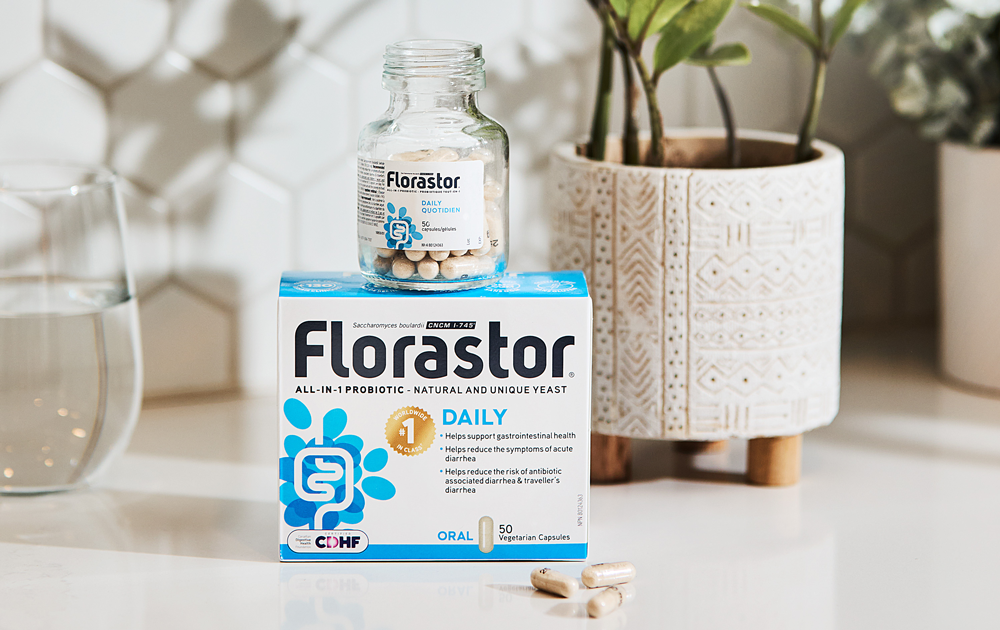June 27th is World Microbiome Day and I can think of few better ways to celebrate than to share some meaningful insights into both the gut microbiome and the state of gut health in Canada more broadly.
Public perceptions in this area are evolving rapidly and admittedly, so are my own!
A few facts on microbiome
Despite being a massive enthusiast in this area, it was only just recently that I learned the distinction between the terms “gut microbiome” and “gut microbiota”.
I’ve often used the terms interchangeably, but now fully appreciate they actually mean slightly different things.
Microbiota: Refers to the trillions of microorganisms like bacteria, viruses and fungi that live in your digestive tract. You can picture them as individual members of a massive community.
Microbiome: Is a broader term and refers to the whole ecosystem where these microorganisms exist which includes details like the genetics of the organisms, the compounds they create and how they interact with their environment.
Now you have a new party trick!
Let’s keep the conversation going.
The 2025 edition of the International Microbiota Observatory survey offers fascinating insights into global public understanding of the gut microbiome, two of which I wanted to share and elaborate on.
1. Awareness is increasing, but action is not there yet.
There is a growing sense that more and more of the general public appreciate that the gut microbiota plays a meaningful role in many aspects of health and disease.
As a dietitian in private practice, I increasingly find that my clients are interested and compelled by how food influences this aspect of our body.
However, there still exists a gap in the broader public between the awareness of the microbiome and the steps one might take in their daily life to optimize the balance of their microbiota.
Eating enough dietary fibre is a big part of closing that gap as many Canadians struggle to meet their needs for. The recommended intake is 25–38g/day, but the average Canadian consumes only 14–18g/day.
Below you will find some dietary components that are well supported by evidence to positively influence levels of healthy gut bacteria in our bodies, the majority of theme are also very good sources of fibre – this is no coincidence!
- Fermented Foods – like yogurt, kimchi, kefir and sauerkraut
- Polyphenols – found in rich supply in cocoa powder, flaxseed, artichoke and berries.
- Prebiotic Fibres - green bananas, lentils & other beans, onions, asparagus & garlic.
2. The impact of antibiotics is not fully appreciated
There continues to be a lack of awareness around the fact that antibiotic use can meaningfully disrupt the balance of the gut microbiota, by also eliminating helpful species of bacteria which can alter the microbiome (ecosystem!) and make it easier for harmful bacteria to thrive in the time period after antibiotic use.
It’s equally true that an appreciation for the protective role of probiotics in this area is not fully appreciated.
A 2021 CDHF survey found that 57% of Canadians are familiar with the term “probiotics,” and about 30% report using them regularly.
The use of Florastor’s unique strain of S. Boulardii in conjunction with antibiotics can not only significantly reduce your risk of experiencing antibiotic associated diarrhea but also helps to suppress the growth of harmful bacteria after completing an antibiotic course.
It’s clear that an individual’s long-term health and quality of life will be enhanced by better understanding the value of the gut microbiota and the different ways it can be influenced for better (or for worse).
There is, of course, more to digestive health than just the gut microbiome so let’s take in some important facts and figures looking at the broader state of gut health in Canada.
Gut health in Canada - A Snapshot
The Canadian Digestive Health Foundation (CDHF) currently estimates that millions of Canadians experience some type of digestive disorder on an annual basis.
IBS, irritable bowel syndrome, is among the most common of these disorders, affecting 13-20% of the population, with women twice as likely to experience it than men.
Over 60% of IBS sufferers also struggle with mental health concerns, which really shows how closely our gut and brain are connected, and just how much gut health can affect how we feel overall.
Given that imbalances between the levels of helpful and harmful bacteria (known as dysbiosis) in the microbiota are common amongst IBS sufferers, the connection between the topics we’ve explored here today really comes full circle.
Final thoughts
In today’s article we’ve only just scratched the surface of how influential gut health and the gut microbiota are to our quality of life and long-term health.
Our gut bacteria also play important roles in managing bodily inflammation, our immune system and even how foods influence our blood sugar levels.
Understanding the value of dietary modification and strategic probiotic use are of great importance for these reasons, but other lifestyle factors including sleep and physical activity (including walking!) also have a massive role to play.
References
- https://pmc.ncbi.nlm.nih.gov/articles/PMC5341914/
- https://badgut.org/information-centre/a-z-digestive-topics/ibs/
- https://cdhf.ca/en/mediaplanet-did-you-know-women-are-2x-more-likely-to-have-ibs-than-men/
- https://cdhf.ca/en/long-term-benefits-of-cognitive-behavioural-therapy-for-ibs/
- https://pubmed.ncbi.nlm.nih.gov/31473156/


.jpeg?sw=375&sfrm=png&q=90)


